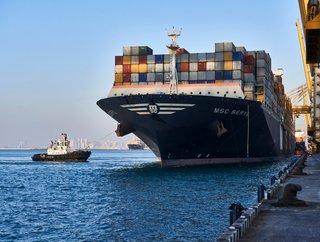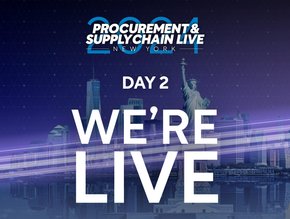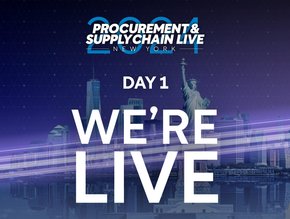DP World joins key shipping net zero group, FMC

At COP28, DP World announced it is joining the First Movers Coalition (FMC), a key body in the move towards global net zero targets.
Launched by the World Economic Forum and the US Government, the FMC serves to decarbonise challenging sectors, including shipping (along with aviation, aluminium, chemicals, concrete, steel and trucking). Collectively these industries contribute to 30% of global emissions.
The FMC It has grown to 95 members who collectively have made 120 sustainability commitments. In the past week alone, Danish multinational engineering group Danfoss and Swedish automotive giant Volvo Cars also joined.
During the convening of the FMC at COP28, DP World CEO Sultan Ahmed bin Sulayem said joining FMC was a “clear signal of our intent to tackle the climate impact of our operations while maintaining the efficient flow of global trade”.
Sea shipping is a key area for decarbonisation. The world’s 100,000 commercial vessels consume around 300 million tonnes of fuel every year making shipping accountable for around 3% of global carbon emissions. But that could hit 10% by 2050 if it continues as its current growth rate, according to findings of the Fourth IMO Greenhouse Gas Study.
Accelerated decarbonisation is the goal, with the UN’s International Maritime Organisation (IMO) aiming to halve carbon emissions from the shipping sector by 2040.
Ports and terminals are critical partners in helping to reach global emission reduction goals, and among major players, DP World is one of the world’s largest.
The company, with ports around the world from Buenos Aires to Hong Kong, currently manages 9% of the world’s handling capacity and is among the top five global ports operators.
An integral part of global trade, the US$13.52 billion company is made up of four pillars (Ports and Terminals, Logistics, Marine Services, Technology) and has more than 150 companies and 103,000 employees spanning 75 countries and six continents – with revenues of US$17 billion in 2022.
Recognising the impact of its operations on the environment, but also its responsibility in ensuring efficient flow of global trade, DP World has made ambitious but realistic commitments to combating climate change – with a clear roadmap towards net zero.
As part of its sustainability strategy – ‘Our World, Our Future’ – the business has committed to becoming carbon neutral by 2040 and net-zero carbon by 2050 (aligned to the UNFCCC’s Race to Zero and UAE’s 2050 net zero initiative) – with an intermediate target of a 28% reduction in its carbon footprint by 2030.
In 2022, the global ports operator said it had cut global emissions by 5% in 2022, with a 4% reduction in energy consumption – including slashing carbon emissions from its UAE operations by nearly 50%.
This is thanks largely to electrifying many of its operations across the 75 countries it operates worldwide, pioneering biofuel use, and continuing to explore other cutting-edge solutions – like carbon-neutral synthetic natural gas.
Central to its decarbonisation strategy is a push towards electrification and alternative fuels and advocating ‘collective commitment and action’.
Decarbonising shipping – investing in alternative fuels
Last year, at COP27 in Sharm Al-Sheikh, DP World announced it had joined the Green Shipping Challenge and committed to investing up to US$500 million to cut CO2 emissions by nearly 700,000 tonnes over the next five years.
And just in the last few months, DP World has raised US$1.5 billion to fund its global decarbonisation projects, with funds being poured into green projects that include electrification, renewable energy, clean transportation and energy efficiency.
The business has also partnered strategically with the Maersk McKinney Moller Centre for Zero Carbon Shipping, which is driving decarbonisation of the maritime industry by 2050 through collaboration and regulatory reform, and joined the UN Global Compact’s Think Lab on Just Transition.
DP World says it has reduced its carbon emissions by electrifying its terminals in Rotterdam and Jebel Ali, alongside pioneering the use of biodiesel in its Southampton port in the UK.
This year too, P&O Ferries, part of DP World’s Marine Services arm, introduced the world’s first ferry designed with a hybrid diesel-electric power plant.
And DP World expects its total demand for clean methanol powering its five vessels to be around 38,000 tonnes per year by 2030. Unifeeder Group, part of DP World Marine Services, has already signed a long-term time-charter agreement for two new methanol-capable container feeder vessels, which will be deployed in Europe.
- Shipping Losses Drop to All-Time Low – Allianz CommercialSupply Chain Risk Management
- GlobalData: Supply Chain Pressure Emerges as Global ConcernSupply Chain Risk Management
- Hapag-Lloyd on path to Zero-Emission Shipping through ZEMBASustainability
- Could Schneider’s Offshore Charging Transform Shipping?Sustainability






